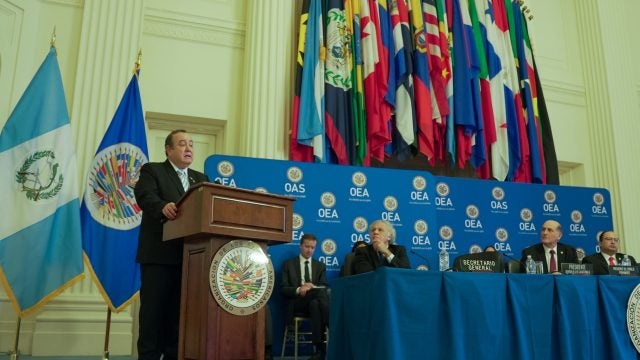
Title: Why the United States’ Re-Engagement with the Paris Agreement is Crucial in a Post-COVID World
The COVID-19 pandemic has reduced global greenhouse gas emissions substantially. While some claim that the pandemic has benefited the environment in many ways by decreasing pollution, others argue that this is only a temporary phenomenon, as emissions are expected to proliferate once the lockdown restrictions are relaxed.
This rapid rise in emissions can be attributed to countries striving to maximize their economic growth in a post-pandemic era. The climate crisis may especially worsen in the wake of the pandemic if international climate agreements are not strictly adhered to. As of now, the Paris Climate Agreement is the only international agreement ratified by the majority of countries in the world that regulates carbon emissions. However, with the United States’ declaration to withdraw from the Paris Agreement in 2017, uncertainty is looming over the future of the agreement in a post-COVID-19 world with increased pollution. At present, the United States is the second-largest carbon emitter in the world. If the United States continues to stay away from the Paris Agreement, the consequently decreased emission space and lack of climate aid would discourage China, the largest carbon emitter, and other significant emitters from actively engaging with the agreement. Hence, combating climate change transnationally will be a tough challenge for the world with the absence of U.S. leadership. This article analyses the factors that necessitate U.S. re-engagement with the Paris Agreement in a post-COVID-19 world.
Factors Necessitating U.S. Participation in the Paris Agreement
Firstly, the U.S. rejection of important international agreements such as the Kyoto Protocol and Paris Agreement has the potential to undermine the United States’ legitimacy and image in international climate politics. Climate change is transnational, and addressing it is thus the collective responsibility of states. Since the formation of the United Nations Framework Convention on Climate Change (UNFCCC), the United States has played a significant role in framing the international climate agreements that regulate global emissions. Notably, the United States was actively involved in the formulation of the 1997 Kyoto Protocol and later the 2015 Paris Agreement. However, the United States failed to ratify the Kyoto Protocol, pointing out that the treaty imposed an undue economic burden on the United States and therefore undermined its sovereignty. At present, the United States is planning to withdraw from the 2015 Paris Climate Agreement, once again citing the economic cost of climate action for the United States and the benefits the agreement delivers to China and India while leaving it without any gains. The successive abandoning of international climate agreements will undermine the legitimacy and prestige of the United States in the climate world.
Secondly, the United States is the second-largest carbon emitter in the world after China and the country with the largest historical emissions. In terms of per capita emissions, the United States is far ahead of the second-largest emitter, China. Hence, the implementation of any international emission reduction agreement without the active engagement of the United States would prove meaningless in light of the country’s significant contribution to the problem.
Thirdly, states have mistrust and uncertainty about one another’s actions in international politics, making cooperation between states nearly impossible if these assumptions are mutual. The United States’ withdrawal from the Paris Agreement has been viewed with suspicion by China, especially in a world order where China and the United States constantly accuse each other of not fulfilling their international obligations. If the United States sticks to its decision, it will discourage China, the present biggest carbon emitter, from actively engaging with the Paris Agreement. This is because China will then realize that taking climate action single-handedly in the absence of the United States will come with severe economic costs. Therefore, the future of the Paris Agreement and the response of major emitter countries to the Paris Agreement are largely dependent on the attitude and approach of the United States. Although the Trump administration has made it clear that the country would continue to take domestic action to combat climate change even after its formal exit from the Paris Agreement, domestic action alone is insufficient to encourage the active participation of China in the agreement. To keep China actively engaged with the Paris Agreement, the United States must lead the agreement at its vanguard.
Fourthly, finance and technology are essential components for combating climate change. Under the Paris Agreement, countries submitted their voluntary emission reduction commitments based on their respective capabilities. Fulfilling the Paris obligations would remain very difficult for the majority of developing countries without the financial and technological support from developed countries, especially the United States. The Cancun Conference created a Green Climate Fund in 2010 to help developing countries address climate change. Under the fund, the United States was expected to provide a significant portion of climate funding to these countries. With the United States’ decision to leave the Paris Agreement, finance and technology transfer to developing countries will dwindle, thus weakening their participation in the Paris Agreement. Therefore, in order to help other countries to fulfill their Paris commitments, the United States should re-engage with the agreement.
Lastly, like any other country in the world, the United States is vulnerable to the impacts of climate change. Climate change poses a “strategically significant risk” to national security as well. It is important for the United States to address the climate problem as a security threat which has national and international implications. Realists claim that COVID-19 has proved to the world that state responses ultimately matter most in international politics, rather than the efforts of international institutions. However, in a post-COVID-19 world where the climate crisis is expected to worsen, combating climate change is nearly impossible without international cooperation, especially between China and the United States.
Conclusion
Although China and India have stated that they will try to meet their Paris pledges even after the United States’ decision to pull out from the Paris Agreement, in a post-COVID-19 scenario, the response, behaviour, and attitude of these countries towards the agreement are actually dependent on the United States’ actions. As trade tensions between China and the United States continue, it is unlikely that China will carry out substantial emission reductions at present, as it realizes that taking climate action unilaterally would come at an economic cost. In light of this, the United States must re-engage with the Paris Agreement to save it from an early demise. Furthermore, for the United States, addressing climate change domestically and internationally is an opportunity to expand its soft power and solidify its legitimacy on the international stage. Leading climate initiatives and negotiations will not only give the United States a moral high ground in international politics but also enable it to counter China’s power ambitions.
. . .
Dr. Anu Unny is an Assistant Professor at the Department of Political Science, University of Kerala, India. Her research interests include climate change politics, gender politics, South Asia politics, and U.S. politics.
Recommended Articles

For many in the Global South, the ‘American Peace’ or Pax Americana is a mirage amid a world of war, economic hardship, forced migration, environmental calamity, and political repression while…

The United Nations is scheduled to host its third meeting of international envoys to Afghanistan in Doha on June 30, 2024. This meeting aims to discuss and address significant…

Qatar plays a crucial role in mediating conflicts in the Middle East region. Its engagement in negotiations with diverse stakeholders–including countries like Lebanon, Sudan, and Libya and non-state actors such…